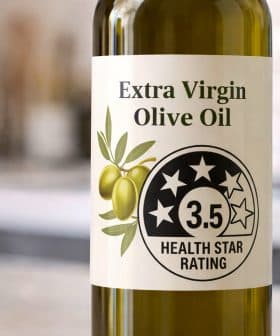Mediterranean Diet Associated with Successful Aging, Study Finds
Researchers found that Greeks who followed the Mediterranean diet were healthier and more active as they aged than those who followed the diet less closely.
A study comparing Greeks living in Greece with those living abroad found that adherence to the Mediterranean diet is associated with higher levels of successful aging among people of the same genetic background. The study suggests that personal lifestyle choices, social supports, cultural practices, and living environment all play a significant role in successful aging, even among individuals with similar genetic backgrounds.
A new study published in Nutritional Health compared the diet of Greeks living in Greece with those living abroad.
The study concluded that adherence to the Mediterranean diet is associated with a higher level of successful aging among people of the same genetic background living in different environments.
Our study found that Greeks living abroad had greater successful aging levels compared to Greeks living in Greece… Importantly, Greeks living abroad were following a Mediterranean diet more closely than Greeks in Greece.
The study aimed to compare adherence to the Mediterranean diet and successful aging levels between Greeks living in Greece and Greeks living abroad.
“The Greek population is amongst the longest-living populations in the world, and rates of aging remain high compared to other European countries,” Catherine Itsiopoulos, the executive dean of RMIT University Bundoora’s School of Health and biomedical science in Australia, told Olive Oil Times.
See Also:Health News“However, the prevalence of chronic diseases in Greece, such as heart disease, stroke, dementia and depression, are on the rise, particularly in the older populations,” she added. “Although disease prevention and treatment is key to extending life, focussing on improving quality of life and achieving successful aging becomes even more important.”
While the Mediterranean diet has long been linked with longevity, Itsiopoulos said successful aging entails more than just disease absence as people age.
“It involves preserving functional abilities such as meeting basic personal needs, being mobile, making decisions, maintaining healthy relationships, continuing to learn, and being a valuable member of society,” she said.
“Although genetics is important in how well we age and whether we are at a greater risk of developing chronic diseases, our environment and the way we live is important,” Itsiopoulos added.
In the study, the researchers sought to examine the ‘nature vs. nurture’ of the historic levels of longevity observed in Greece.
“We compared successful aging levels in Greeks living in Greece with Greeks living abroad (in Australia and the United States) to determine the role of the living environment in people of the same genetic background,” Itsiopoulos said.
Researchers used a validated successful aging index tool (scoring from 0 to 10) that includes health-related, social, lifestyle and clinical factors, including education, financial status, physical activity, body mass index, depression, participation in social activities with friends and family, number of yearly excursions, the total number of clinical cardiovascular disease risk factors (i.e., history of hypertension, diabetes, hypercholesterolemia and obesity) and level of adherence to the Mediterranean diet.
“Our study found that Greeks living abroad had greater successful aging levels compared to Greeks living in Greece as they were more physically active, smoked less, were more socially active, had lower levels of depression, had higher levels of education and were better off financially,” Itsiopoulos said. “Importantly, Greeks living abroad were following a Mediterranean diet more closely than Greeks in Greece.”
“Our study has shown that people’s personal lifestyle choices, social supports, cultural practices and where they live play a very important role in successful aging, even among those who share the same genetic background,” she added.
The study used the Mediterranean diet score, which ranges from 0 to 55. A successful aging index was evaluated as a range from 1 to 10.
The results showed that Greeks living abroad consumed significantly more cereals, legumes, vegetables and fruits than the other group.
Greeks living in Greece consumed significantly more dairy and potatoes. Across both groups, consumption of meat, poultry, fish, extra virgin olive oil, and alcohol was found to be comparable.
After adjusting for possible variations, MedDiet Score was positively associated with successful aging index scores among both groups.
The study authors note that legumes, cereals, fruits and vegetables are notably found to be beneficial for successful aging.
The Mediterranean Diet
The Mediterranean diet is a healthy eating plan that is based on the traditional cuisines of countries bordering the Mediterranean Sea. It is rich in fruits, vegetables, whole grains, legumes, nuts, and seeds, and it includes moderate amounts of fish, poultry, and dairy. The diet also emphasizes the use of olive oil as the primary source of fat.
The Mediterranean diet has been shown to have a number of health benefits, including reducing the risk of heart disease, stroke, type 2 diabetes, and some types of cancer. It is also associated with a longer lifespan.
Here are some of the key components of the Mediterranean diet:
Plant-based foods: The Mediterranean diet is based on plant-based foods, such as fruits, vegetables, whole grains, legumes, nuts, and seeds. These foods are low in saturated fat and cholesterol, and they are high in fiber, vitamins, minerals, and antioxidants.
Olive oil: Olive oil is the main source of fat in the Mediterranean diet. It is a healthy fat that is high in monounsaturated fatty acids, which have been shown to benefit heart health.
Fish: Fish is a good source of protein and omega‑3 fatty acids, which are beneficial for heart health. The Mediterranean diet recommends eating fish at least twice a week.
Moderate amounts of poultry, dairy, and red meat: The Mediterranean diet allows for moderate amounts of poultry, dairy, and red meat. However, it is recommended to choose lean cuts of meat and to limit red meat intake to no more than a few times per week.
Moderate alcohol consumption: The Mediterranean diet allows for moderate consumption of alcohol, such as red wine. However, it is important to note that alcohol should be consumed in moderation, as it can be harmful to health if consumed in excess.
The Mediterranean diet is a healthy and delicious way of eating that has been shown to have a number of health benefits. If you are looking for a way to improve your health, the Mediterranean diet is a great option.
The authors conclude that adherence to the Mediterranean diet is associated with higher levels of successful aging among people with similar genetic backgrounds.
However, traditional dietary habits are gradually abandoned in their native countries. At the same time, these habits are considered cultural heritage and preserved among immigrants.
“To maximize our potential for successful aging, we can all aim to engage in regular physical activity; engage in social activities regularly and maintain healthy relationships; try to manage stress, not smoke, and adhere to a Mediterranean-style diet,” Itsiopoulos said.
“Our cross-sectional study demonstrated that living environment and personal choices can have a significant impact on successful aging in the population of Greeks living in Greece and the Mediterranean,” she added.
Itsiopoulos said future research should include similar studies on other populations with different cultural and socioeconomic backgrounds “to assess whether these findings are transferable and generalizable and to potentially identify other factors that may also be important in successful aging.”
”It would also be important to examine the effect of the successful aging index levels in large population groups followed over time on healthy longevity,” Itsiopoulos concluded.
Share this article










